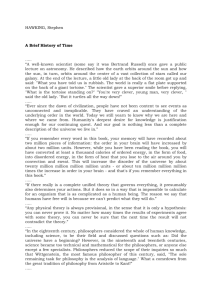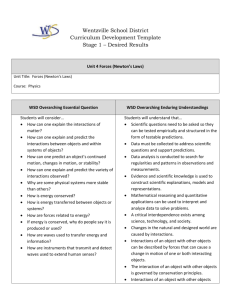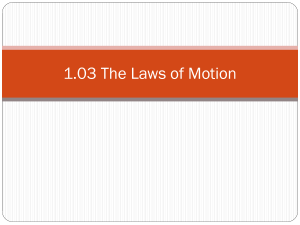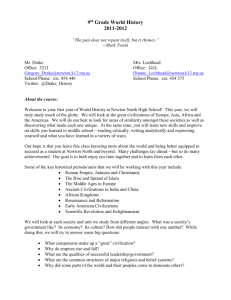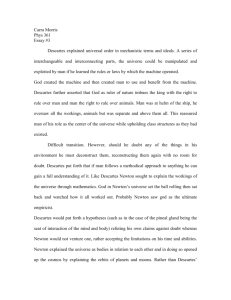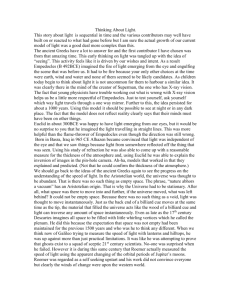Background for Essay on Man: The Great Chain of Being & Newton
advertisement
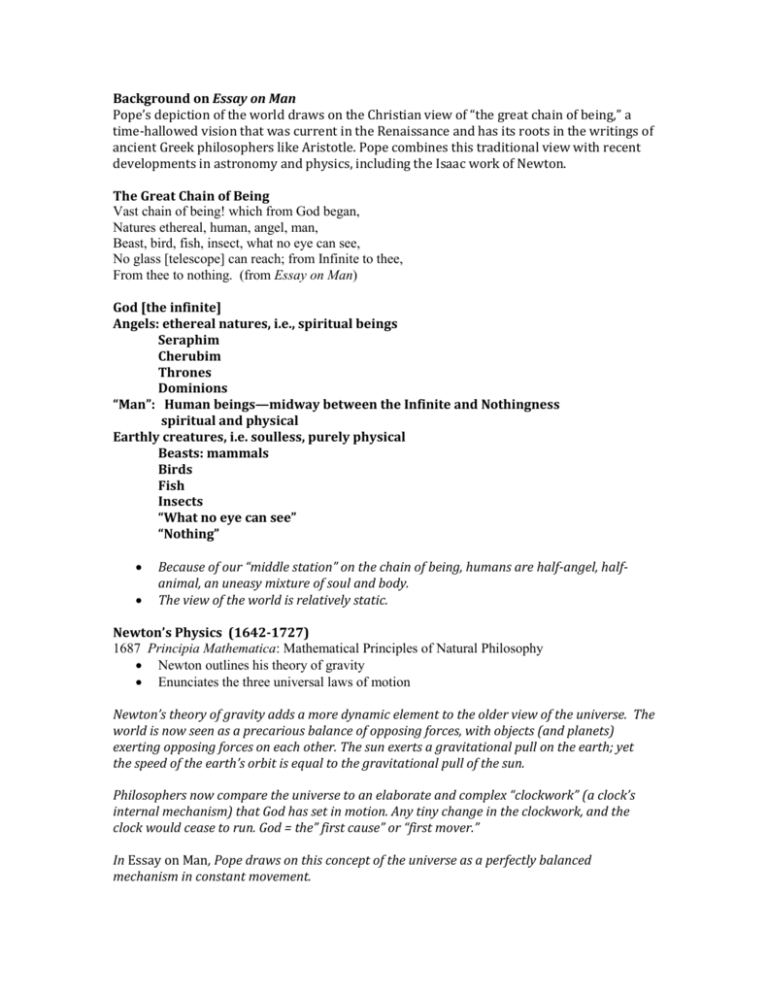
Background on Essay on Man Pope’s depiction of the world draws on the Christian view of “the great chain of being,” a time-hallowed vision that was current in the Renaissance and has its roots in the writings of ancient Greek philosophers like Aristotle. Pope combines this traditional view with recent developments in astronomy and physics, including the Isaac work of Newton. The Great Chain of Being Vast chain of being! which from God began, Natures ethereal, human, angel, man, Beast, bird, fish, insect, what no eye can see, No glass [telescope] can reach; from Infinite to thee, From thee to nothing. (from Essay on Man) God [the infinite] Angels: ethereal natures, i.e., spiritual beings Seraphim Cherubim Thrones Dominions “Man”: Human beings—midway between the Infinite and Nothingness spiritual and physical Earthly creatures, i.e. soulless, purely physical Beasts: mammals Birds Fish Insects “What no eye can see” “Nothing” Because of our “middle station” on the chain of being, humans are half-angel, halfanimal, an uneasy mixture of soul and body. The view of the world is relatively static. Newton’s Physics (1642-1727) 1687 Principia Mathematica: Mathematical Principles of Natural Philosophy Newton outlines his theory of gravity Enunciates the three universal laws of motion Newton’s theory of gravity adds a more dynamic element to the older view of the universe. The world is now seen as a precarious balance of opposing forces, with objects (and planets) exerting opposing forces on each other. The sun exerts a gravitational pull on the earth; yet the speed of the earth’s orbit is equal to the gravitational pull of the sun. Philosophers now compare the universe to an elaborate and complex “clockwork” (a clock’s internal mechanism) that God has set in motion. Any tiny change in the clockwork, and the clock would cease to run. God = the” first cause” or “first mover.” In Essay on Man, Pope draws on this concept of the universe as a perfectly balanced mechanism in constant movement.

